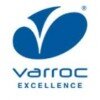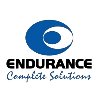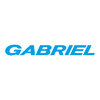
i
Zf Rane
Automotive
Filter interviews by
Zf Rane Automotive Interview Questions and Answers
32 Interview questions
Effective management control is maintained through clear communication, setting goals, monitoring progress, and providing feedback.
Establish clear communication channels within the team
Set specific goals and objectives for each team member
Regularly monitor progress towards goals
Provide timely feedback and support to team members
Implement performance metrics to track success
I am a dedicated Assembly Operator with a strong background in manufacturing and a passion for precision and teamwork.
Experience: Over 3 years in assembly line work, focusing on quality control and efficiency.
Skills: Proficient in using hand tools and machinery, ensuring safety and accuracy in all tasks.
Teamwork: Collaborated with a team of 10 to meet production goals, improving output by 15%.
Problem-solving: Iden...
I'm drawn to the Assembly Operator role due to my passion for precision, teamwork, and contributing to high-quality production processes.
I enjoy working with my hands and find satisfaction in assembling components accurately, as seen in my previous role at XYZ Manufacturing.
The collaborative environment in assembly lines excites me; I thrive in team settings where we collectively achieve production goals.
I appreci...
I am drawn to this company for its commitment to quality, innovation, and employee development in the assembly industry.
The company's reputation for high-quality products aligns with my personal values of excellence.
I admire the innovative techniques used in assembly processes, which I believe can enhance my skills.
The focus on employee training and development shows that the company invests in its workforce, whic...
My aim is to become a skilled and efficient machine operator, consistently producing high-quality products while ensuring safety and efficiency.
To continuously improve my technical skills and knowledge in operating various types of machines
To maintain a high level of productivity and quality in my work
To prioritize safety protocols and procedures to prevent accidents and ensure a safe working environment
To work co...
There are 5 phases of APQP: Planning, Product Design, Process Design, Product and Process Validation, and Feedback, Assessment, and Corrective Action.
Phase 1: Planning involves defining the project scope, objectives, and timeline.
Phase 2: Product Design focuses on creating the product design based on customer requirements.
Phase 3: Process Design involves developing the manufacturing process to produce the product.
...
Implementing thorough quality control measures, training employees on best practices, and utilizing advanced technology to minimize defects.
Implementing a robust quality control system to catch defects early on
Providing comprehensive training to employees on quality standards and best practices
Utilizing advanced technology such as automated inspection systems to minimize defects
Regularly reviewing and analyzing pr...
Chain stitch formations are a type of stitch pattern commonly used in sewing and embroidery.
Chain stitches are created by looping the thread back on itself to form a chain-like appearance.
They are often used for decorative purposes or to create a strong and flexible seam.
Examples of chain stitch formations include the hand embroidery technique of chain stitching and the chain stitch used in sewing machines.
Chain s...
The main stages of project management include initiation, planning, execution, monitoring and control, and closure.
Initiation: Defining the project's objectives, scope, and stakeholders.
Planning: Developing a detailed project plan, including tasks, resources, and timelines.
Execution: Carrying out the project plan and managing resources effectively.
Monitoring and Control: Tracking project progress, identifying and ...
The purpose of this company is to provide financial services and solutions to individuals and businesses.
To offer customized financial solutions to clients
To help clients achieve their financial goals
To provide excellent customer service
To stay up-to-date with industry trends and regulations
To maintain a strong reputation in the financial industry
Zf Rane Automotive Interview Experiences
58 interviews found
I appeared for an interview in May 2025, where I was asked the following questions.
- Q1. Why are you leaving your current job?
- Ans.
I'm seeking new challenges and opportunities for growth that my current role cannot provide.
Desire for career advancement: I feel I've reached a plateau in my current position and am eager to take on more responsibilities.
Looking for a better fit: The company culture and values at my current job don't align with my personal and professional goals.
Seeking new challenges: I want to work in an environment that pushes me t...
- Q2. What factors motivate you in your professional life?
- Ans.
I am motivated by challenges, teamwork, continuous learning, and the impact of my work on the organization and its people.
Challenges: I thrive on overcoming obstacles, like improving production efficiency by 20% in my last role.
Teamwork: Collaborating with diverse teams fosters creativity and innovation, as seen when we launched a new product line together.
Continuous Learning: I seek opportunities for professional deve...
- Q3. What motivates you to seek employment with this company?
- Ans.
I'm motivated by the company's commitment to innovation and quality, aligning with my passion for efficient production processes.
The company's reputation for excellence in production aligns with my professional values.
I admire the focus on employee development and continuous improvement.
The opportunity to work with cutting-edge technology excites me, as I thrive in dynamic environments.
I am drawn to the company's susta...
- Q4. What qualities or experiences make you unique?
- Ans.
My unique blend of leadership, problem-solving skills, and hands-on experience in production sets me apart as a Shift Incharge.
Proven leadership: Successfully led a team of 20 in a high-pressure environment, improving productivity by 15%.
Strong problem-solving skills: Developed a troubleshooting guide that reduced machine downtime by 30%.
Hands-on experience: Worked on the production floor for over 5 years, understandin...
- Q5. This is company supervisor is motivates
- Q6. My life motivation this is my sir
Interview Preparation Tips
I appeared for an interview in May 2025, where I was asked the following questions.
- Q1. What motivates you to apply for this job?
- Ans.
I'm motivated by the opportunity to lead a team, drive positive change, and contribute to the organization's success.
Passion for leadership: I thrive on guiding teams to achieve their goals, as seen in my previous role where I improved team performance by 20%.
Desire for growth: This position offers a chance to develop my skills further, particularly in project management and team dynamics.
Commitment to excellence: I am...
- Q2. What makes you the best fit for this job?
- Ans.
My extensive experience in leadership, problem-solving skills, and commitment to team development make me the ideal candidate for this role.
Proven leadership experience: I successfully led a team of 10 in a previous role, improving productivity by 20% through effective delegation.
Strong communication skills: I implemented weekly check-ins that fostered open dialogue, resulting in a 30% increase in team morale.
Problem-s...
- Q3. This is my senior supervisor
- Q4. This is my company supervisor is motivates
- Ans.
me supervisor is motivated
- Q5. This is motivates my company supervisor
- Ans.
company is permanent joo very important
- Q6. My life motivation this is company supervisor
- Ans.
company is my life very important
Interview Preparation Tips
(2 Questions)
- Q1. How do you perceive your personal and professional growth?
- Ans.
I perceive my personal and professional growth as continuous learning and development.
I actively seek out new challenges and opportunities for growth.
I regularly set goals for myself and work towards achieving them.
I seek feedback from colleagues and mentors to identify areas for improvement.
I attend workshops, seminars, and training programs to enhance my skills.
I reflect on my experiences and learn from both successe...
- Q2. How do you maintain effective management control?
- Ans.
Effective management control is maintained through clear communication, setting goals, monitoring progress, and providing feedback.
Establish clear communication channels within the team
Set specific goals and objectives for each team member
Regularly monitor progress towards goals
Provide timely feedback and support to team members
Implement performance metrics to track success
Interview Preparation Tips
I applied via Campus Placement and was interviewed in Dec 2024. There was 1 interview round.
(4 Questions)
- Q1. Tell me about yourself
- Ans.
I am a dedicated and experienced quality professional with a strong background in implementing and maintaining quality management systems.
Over 10 years of experience in quality assurance and quality control
Certified in Six Sigma and Lean methodologies
Led successful ISO 9001 certification process at previous company
- Q2. Family background
- Q3. Are you interested to work in chennai
- Ans.
Yes, I am interested to work in Chennai.
I have heard great things about the work culture in Chennai.
I am excited about the opportunity to explore a new city.
Chennai is known for its strong presence in the IT industry, which aligns with my career goals.
- Q4. Any questions for me
I applied via Recruitment Consulltant and was interviewed in Nov 2024. There was 1 interview round.
(2 Questions)
- Q1. Introduction duction
- Q2. Question asked related to job role
Interview Preparation Tips
- Machine Design
I appeared for an interview in Feb 2025, where I was asked the following questions.
- Q1. System administration
- Q2. Server backup, desktop, laptop, Firewall ,network & cctv camera
- Q1. Sap questions and normal questions
- Q2. Other questions karna
- Q3. Or personal information
- Q4. Work information
I applied via Naukri.com and was interviewed in Jan 2024. There was 1 interview round.
(2 Questions)
- Q1. Press machine and CNC machine
- Q2. Process quality and instruments
I applied via Company Website and was interviewed in May 2024. There were 2 interview rounds.
Know how to work in a challenging areas and know about how to manage all critical situation to effect our environment and process
Knowledge about microsoft Excel, Power point, and MS word...
Interview Preparation Tips
- Quality
- Safety
- Leadership Skills
I applied via Company Website and was interviewed in Oct 2023. There were 2 interview rounds.

(6 Questions)
- Q1. About my skills
- Q2. About my experience
- Q3. About my carrier
- Q4. How will you wrk
- Q5. About my character
- Q6. About my performance
Interview Preparation Tips
Top trending discussions






Zf Rane Automotive Interview FAQs
The duration of Zf Rane Automotive interview process can vary, but typically it takes about less than 2 weeks to complete.
Tell us how to improve this page.
Zf Rane Automotive Interviews By Designations
- Zf Rane Automotive Diploma Trainee Engineer Interview Questions
- Zf Rane Automotive Manufacturing Engineer Interview Questions
- Zf Rane Automotive Quality Inspector Interview Questions
- Zf Rane Automotive Executive Interview Questions
- Zf Rane Automotive Production Engineer Interview Questions
- Zf Rane Automotive Senior Executive Interview Questions
- Zf Rane Automotive Senior Engineer Interview Questions
- Zf Rane Automotive Assistant Manager Interview Questions
- Show more
Interview Questions for Popular Designations
Overall Interview Experience Rating
based on 48 interview experiences
Difficulty level
Duration
Interview Questions from Similar Companies
Zf Rane Automotive Reviews and Ratings
based on 959 reviews
Rating in categories
|
Assistant Manager
195
salaries
| ₹4.4 L/yr - ₹11.5 L/yr |
|
Diploma Trainee Engineer
128
salaries
| ₹1.5 L/yr - ₹2.6 L/yr |
|
Senior Executive
123
salaries
| ₹3.3 L/yr - ₹8 L/yr |
|
Senior Engineer
108
salaries
| ₹3.8 L/yr - ₹7.5 L/yr |
|
Trainee
103
salaries
| ₹1 L/yr - ₹3 L/yr |

JBM Group

Subros

Varroc Group

Endurance Technologies
- Home >
- Interviews >
- Zf Rane Automotive Interview Questions












